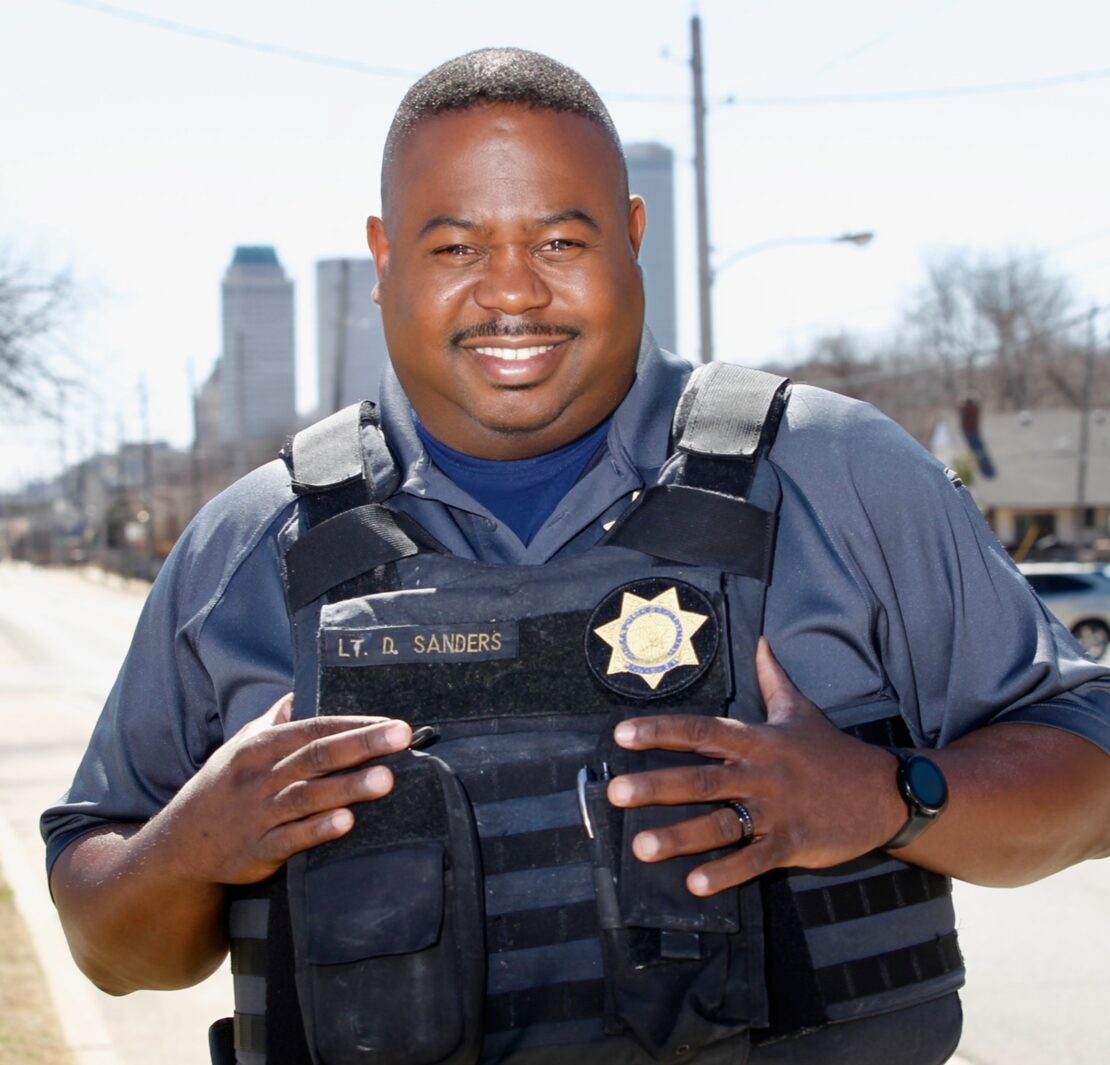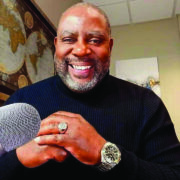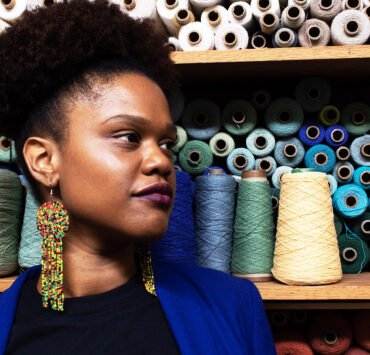918 SERIES
The Oklahoma Eagle is excited to publish a new edition of its 918 Series, a brief Q&A with Tulsans who share their passions and invest in our shared communities. As the title suggests, the series will feature the responses to a mix of nine entertaining and thoughtful questions and one highly person/serious question, all within eight minutes. This week we feature a conversation between Oklahoma Eagle Editor Gary Lee and the Tulsa Police Department’s Dedlorn Sanders. As a lieutenant, Sanders supervises ten officers who patrol North Tulsa. At 55, he has been a member of the Tulsa police force for more than 25 years and acts as a liaison with the Northside community. Born and raised in North Tulsa, Sanders graduated from McClain High School in 1985 and Langston University. He’s married, and a father of three.
Gary Lee
The Oklahoma Eagle
PHOTO
Cory Young
1. What’s the most significant issue between the Tulsa Police and residents of North Tulsa?
Trust. And I get it. Especially when something significant happens -even if it’s not in Tulsa – any situation such as a bad shooting involving a Black person where someone dies behind a gun brings trust issues between the public and the police department. That’s the biggest problem that we have here. Although we have a lot of people in North Tulsa who like interacting with police, whenever things get tense, trust becomes a problem.
2. Name a major misconception about North Tulsa.
People think that if you live on the Northside, you see guns all the time. That was not in my household. I did not grow up like that. The first time I ever touched a gun was when I got into the Tulsa Police Academy.
3. What could improve relations between Black Tulsans and the police?
We’ve got to learn how to stop taking things so personally.
Just because a citizen does not agree with your point of view, don’t take it personally. I always tell my officers: “A person is not mad at you. They are mad at the situation. You have to understand the emotions of people. You just have to let people vent, and then you can deal with the problem.”
4. Where do you like to hang out when you’re off duty?
I go to a lot of high school sports events. I have also been a coach as long as I have been an officer. I coached football at Monroe Junior High, McLain and Central high schools. I also coached girls’ basketball. That helps me get to know people in the community.
5. Name something about police that would help the public understand them better.
It might help if the community understands that we act according to the information we have when we arrive at a scene, before we even get to your location.
People should be aware that we don’t know everything, and the part that we do know is the information that might put our lives in danger.
Sometimes people ask, “Why yawl get your guns out?” That’s often based on the fact that we’ve been told this person may have a weapon. Once we realize the situation, we can back off, but we’re still concerned about our safety.
6. Is gang violence in Tulsa at its peak?
If you ask me, gang violence was worse in the late 80s and 90s. Sure, we have gangs, not only on the Northside but spread out over the city.
But it’s not like it used to be.
Back then, you knew who was who. But it’s not like that anymore. Sometimes, you have to do some work to connect the dots when gang violence.
Back in the late 80s, you knew when you were in the wrong place. Now it’s harder to tell.
But as a regular citizen, most of the time don’t have to worry about gang violence.
7. What can be done to bring more Black people into the police force?
When Black people apply, they have to present themselves as the best even if they are not.
When I talk to young kids today, I remind them they have to keep their names clean and keep their records free of felonies. Even if you have bad credit or got into an argument with your girlfriend, you might get turned down.
So, you have to present yourself as the best of the best.
8. Is there an atmosphere of respect for Black officers among others in the police force?
If you earn respect, people will respect you.
9. What’s the most challenging situation you have encountered on duty? It used to be on the weekends, hundreds of peoples of people would gather at night in the McLain parking lot. There were fights late at night, and we used to have to go in the middle of that stuff.
Every once in a while, somebody pulled out a gun, and we might be involved in a shooting situation where a person passed.
That happened on one of my roughest nights. Many people were around. You didn’t know where the shots were coming from. And once we stopped the situation,
you had many people going crazy, but you couldn’t leave the scene because you had a victim.
We had to stay in the middle of that situation until we could get other officers
10. What’s your life’s mission, and how does police fit into that?
I feel like my life’s mission is to help people. Sometimes, I don’t even realize I am doing it.
It’s in all different ways: helping give food baskets or toys on Christmas, or walking halls in high schools, or talking to kids about life skills, letting them know I grew up like them.
As a police officer, I think I’m accomplishing my goal of being helpful. When you have formerly active gang bangers come up and tell you, “You cared for us, we appreciate you.” That tells me I am doing something right.
When people come up and tell you, “I got a house,” or I see people I used to coach are now coaching – that’s my reward.











